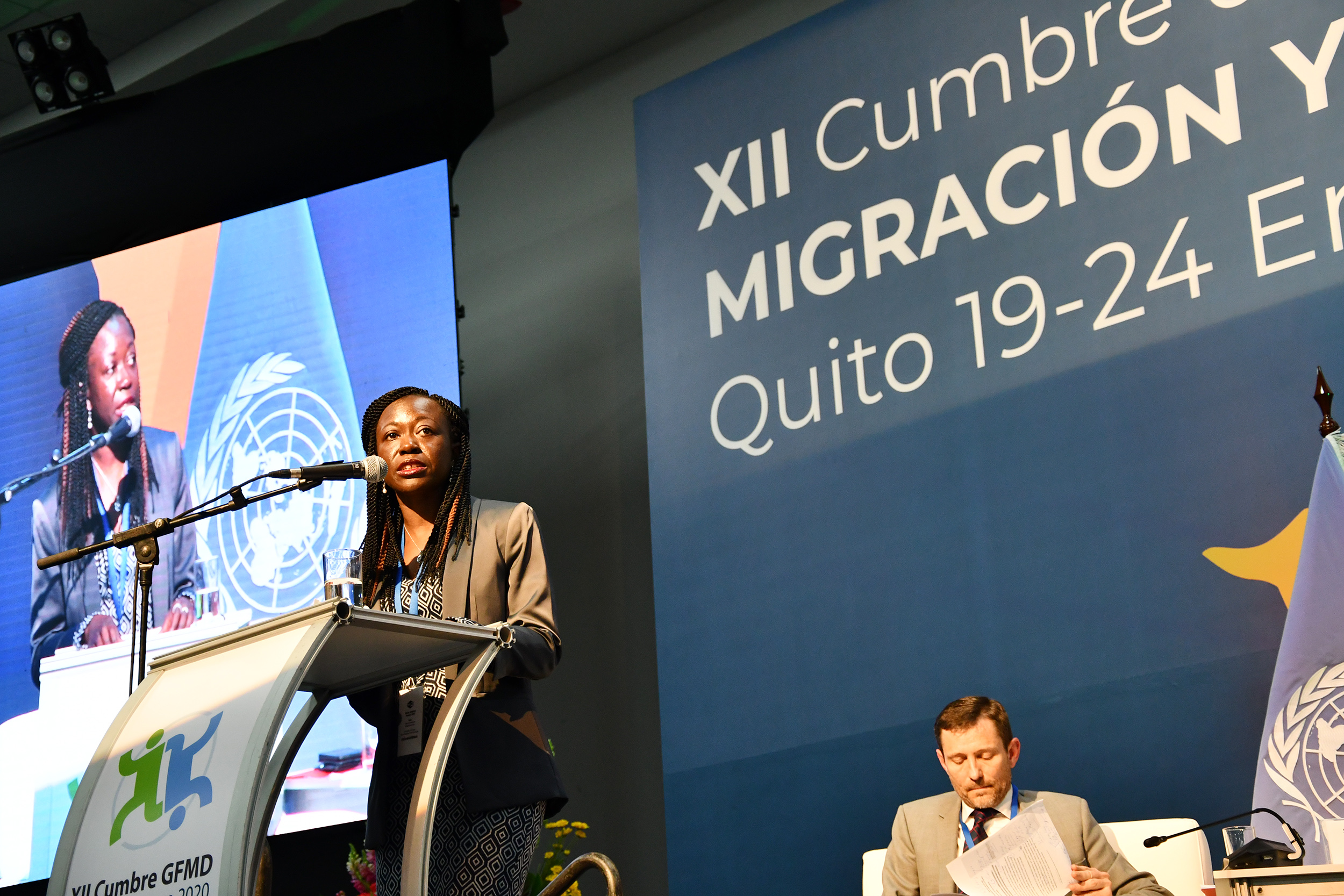The Global Forum on Migration and Development (GFMD) Summit started today, 21 January, with a morning of side events followed by the opening ceremony. In her address to the participants of the GFMD, civil society co-chair Stella Opoku-Owusu highlighted the role of civil society organizations in achieving the commitments of the Global Compact for Migration (GCM) adopted by 152 States, and the need to act on those commitments.
For the 12th GFMD, she challenged participants to:
- Ensure that it is the reality of migrants’ lives that informs the discussions this week – from the bottom up – and not the other way around;
- Be visionary leaders, and hold each other accountable;
- Put migrants at the heart of the discussions and bring our hearts to the discussions too.
“We are all leaders in our own right. Each and every one of us has a vision – for ourselves and for those we serve. We all want better lives for ourselves, our children, our constituencies. Our search for a better life is not driven by national or international processes. It is driven, by an innate human need in the search for fulfilment,” said Ms. Opoku-Owusu.
Holding each other accountable – and that includes governments, local authorities, civil society organizations, the private sector – means understanding the reality of the life of migrants, and what that entails. “In a search for a better life, we accept working conditions that are discriminatory, based on our migration status, nationality, or gender, and for women in particular, we face even more risks and exploitation.”
Ms. Opoku-Owusu also highlighted the role played by leaders and the media, as they “increasingly influence the language on immigration and perpetuate a narrative of ‘deserving refugees’ vs ‘economic migrants’ in the pursuit of self-interest.” This is why “we see a rise in nationalism that fuels xenophobic sentiments and violence against the so-called ‘bad migrants’.”
Finally, she urged the audience to consider the vital role that migrant and diaspora communities play. “As we deliberate on implementation and collective action, we must be guided by the reality that migrants face in their search for better lives.”
Her speech was followed by José Dolores Suazo Mejía, better known as Don Lolo, the other civil society co-chair. Don Lolo brought to the front his personal experience with the tragedies that migration may bring about. His brother Mauricio was murdered along the migration route from Honduras through Central America, and his remains were never returned to this family.
In his passionate speech, he urged participants not to close their eyes to the tragedies happening everyday around us. He affirmed civil society’s commitment and willingness to sit together with governments, local authorities and businesses, to discuss how to improve the reality of migrants’ lives.
He called for the humanization of the way in which we interact with one another, for a more attentive, caring eye towards each other, and especially the most vulnerable among us.
Tomorrow, the Civil Society Day will kick-off with a full program. Stay tuned for updates!

